Families of Wuhan dead ‘silenced’ amid COVID probe
Relatives of Wuhan’s coronavirus victims say they are being pressured to stay quiet as WHO arrives in the city to conduct an investigation into the origins of the pandemic.
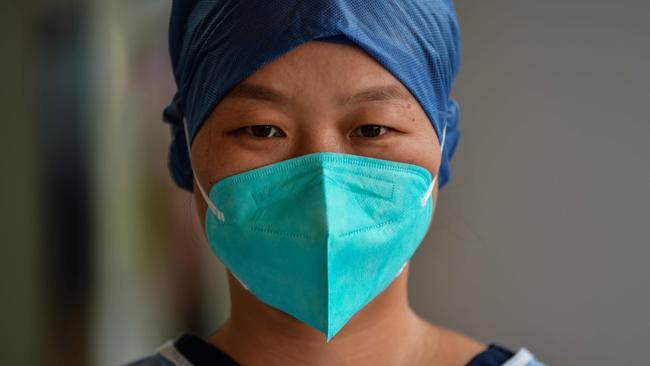
Coronavirus
Don't miss out on the headlines from Coronavirus. Followed categories will be added to My News.
Relatives of Wuhan’s coronavirus dead have claimed Chinese authorities have deleted their social media group and are pressuring them to keep quiet while a World Health Organisation team is in the city to investigate the pandemic’s origins.
Scores of relatives have banded together online in a shared quest for accountability from Wuhan officials who they blame for mishandling the outbreak that tore through the city one year ago.
The effort has thus far been thwarted by official obstruction, monitoring of social media groups and intimidation, say next-of-kin.
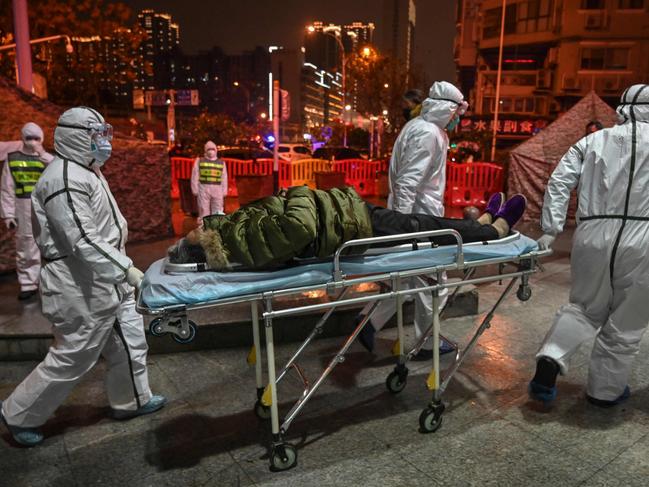
But pressure has escalated in recent days, apparently to muzzle any criticism and avoid embarrassment during the highly sensitive WHO investigation.
A group on social media platform WeChat used by 80 to 100 family members over the past year was suddenly deleted without explanation about 10 days ago, said Zhang Hai, a group member and a vocal critic of the outbreak’s handling.
“This shows that (Chinese authorities) are very nervous. They are afraid that these families will get in touch with the WHO experts,” said Zhang, 51, whose father died early in the pandemic of suspected COVID-19.
The WHO experts arrived in Wuhan on January 14 and are due to emerge from a 14-day quarantine today.
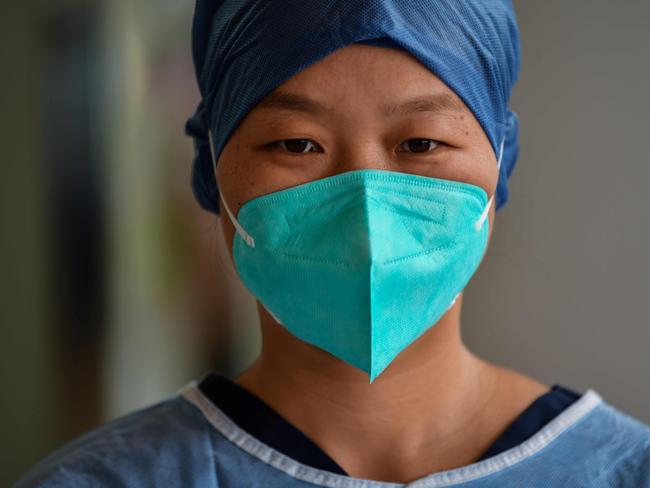
“When the WHO arrived in Wuhan, (authorities) forcibly demolished (the group). As a result we have lost contact with many members,” Zhang added.
Other next-of-kin confirmed the group’s deletion. WeChat is operated by Chinese digital giant Tencent.
Popular platforms routinely censor content deemed objectionable by the government.
Relatives accuse the Wuhan and Hubei provincial governments of allowing COVID-19 to explode out of control by trying to conceal the outbreak when it first emerged in the city in December 2019, then failing to alert the public and bungling the response.
According to official Chinese figures, it killed nearly 3,900 in Wuhan, accounting for the vast majority of the 4,636 dead China has reported.
Many next-of-kin distrust those numbers, saying the scarcity of testing in the outbreak’s chaotic early days meant many are likely to have died without being confirmed as having the disease.
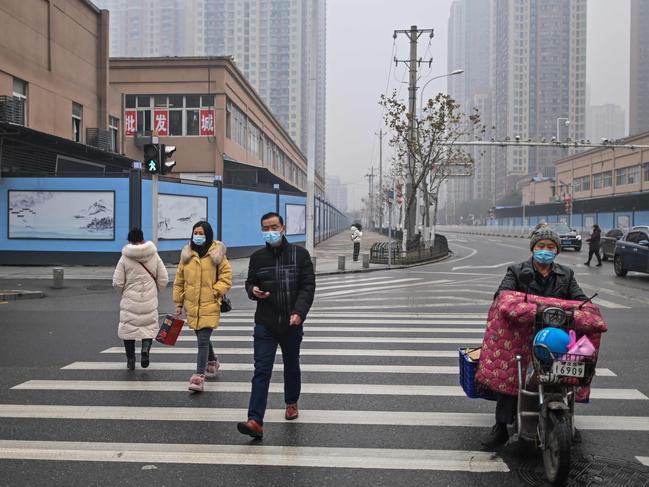
More than two million people have died so far globally.
While China has broadly controlled the pandemic on its soil, it has frustrated independent attempts to trace its origins.
Instead, it has sought to deflect blame for the horrific worldwide human and economic toll by suggesting, without proof, that it emerged elsewhere.
A team of WHO virus experts were finally allowed into Wuhan a fortnight ago. Their highly watched probe into the virus origins is due to start on Thursday, under tight security.
Another family member, a retiree who says her adult daughter died of the virus last January, told AFP she was summoned last week by authorities and warned not to “speak to media or be used by others”.
Authorities came to her door on Tuesday “and sang the same old tune and gave me 5,000 yuan ($775) in a ‘condolence payment’”, she added, requesting anonymity.
WUHAN DOCTOR: ‘CHINA STOPPED ME SOUNDING ALARM’
It comes as a Wuhan doctor also claimed that he and hospital colleagues were stopped from warning others about the looming COVID-19 disaster after they suspected the virus was highly transmissible back in early January, 2020.
The unidentified doctor has opened up about the crisis in a new BBC documentary on the 54 days between the first known case of coronavirus and the Wuhan lockdown. The doctor’s testimony adds to growing evidence of Beijing’s early attempts to cover up the virus outbreak, and bully medical personnel into keeping quiet.
Wuhan’s central hospital is just a few kilometres from the Huanan wet market, ground zero of the coronavirus outbreak, and was quickly overrun by patients after the first cases appeared in December 2019. More than 200 people who worked at the hospital reportedly contracted the virus, and many, including whistleblower doctor Li Wenliang, died.
The doctor told the BBC that the hospital’s respiratory department was at its limit by January 10. “It was out of control, we started to panic,” he said.
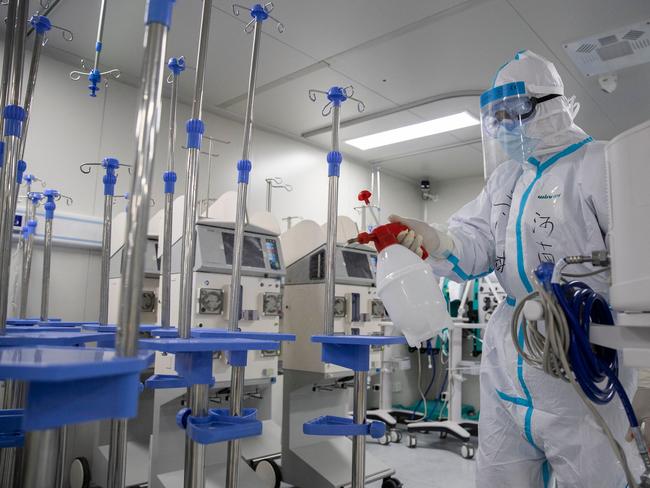
But health workers were barred from speaking to anyone about the looming crisis, and the hospital wouldn’t even let them wear masks, the doctor claimed.
“Everyone knew it was human-to-human transmission, even a fool would know. So why say there was none? This made us very confused and very angry.”
The doctor said that, within weeks, there were hundreds or thousands of suspected cases but they were unable to report a diagnosis within the hospital structure. Just 41 cases had been officially reported by that time.
Previously, reporting had suggested that Beijing leaders were aware of a likely pandemic for at least six days while telling the public there was little risk, before it eventually warned of human-to-human transmission on January 20.
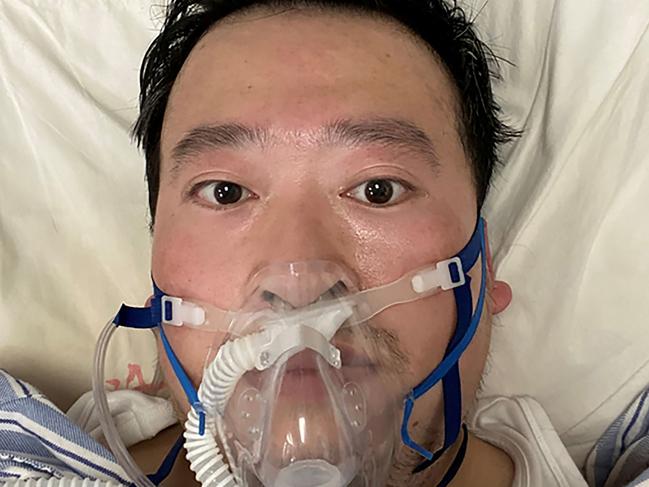
Authorities were also accused of preventing the release of genomic sequencing results for several days, until professor Zhang Yongzhen published his online, against strict orders.
American virologist Ian Lipkin told the BBC he was contacted by the head of the Chinese Centres for Disease Control and Prevention (CDC), George Gao, around the new year, as rumours of the virus began to circulate. Lipkin said Gao told him they had identified the virus and it was not highly transmissible.
The documentary also looks at the response of the World Health Organisation (WHO), which continued to publicly stand by China’s assertion that there was no evidence of human-to-human transmission even while experts internally believed otherwise and were telling world leaders to prepare.
Leaked audio from inside WHO meetings revealed WHO officials discussing the similarity of the situation with the SARS outbreak and “endlessly trying to get updates from China”, and the danger of “finger pointing” if something were to happen.
“[To say] there is no evidence of human-to-human transmission is not good enough. We need to see the data, we need to be able to determine for ourselves the geographic distribution, the timeline, all of that,” WHO’s emergencies head Michael Ryan said at one early January meeting.
The following day, WHO officials again praised China’s response.
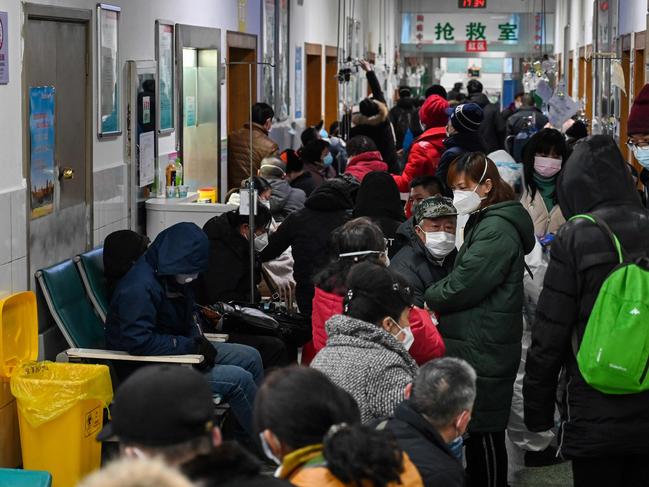
It comes as a team of WHO experts arrived in China this week to investigate the pandemic and how it became transmissible to humans.
The trip, which has long been hampered by delays from China, has begun what could be a long process to piece together the virus’s origin and how to prevent similar — or even worse — future outbreaks.
But the world will be watching the results of the investigation — and China’s willingness to co-operate will also be the focus of intense interest around the world.
That the trip is happening more than a year after the virus was first identified has stoked concern that the government has not been transparent in its handling of the virus. And political quarrels have emerged, particularly between China and the United States, with the Trump administration blaming China for the pandemic.
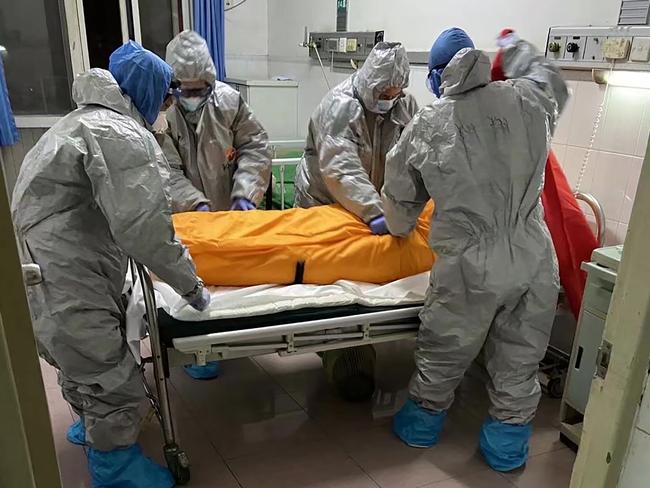
And while the focus is squarely on science, WHO’s experts also know they will be navigating a political minefield.
“The objective of the investigation is not to designate a guilty country or authority,” said Yanzhong Huang, a senior fellow for global health at the Council on Foreign Relations told NBC News in the US.
“But we also have to be realistic: This is a very politicised world, and if the research suggests China is the origin point of the outbreak, that hypothetical finding could indeed be used as smoking gun evidence to support claims that China is guilty.”
More Coverage
Originally published as Families of Wuhan dead ‘silenced’ amid COVID probe




